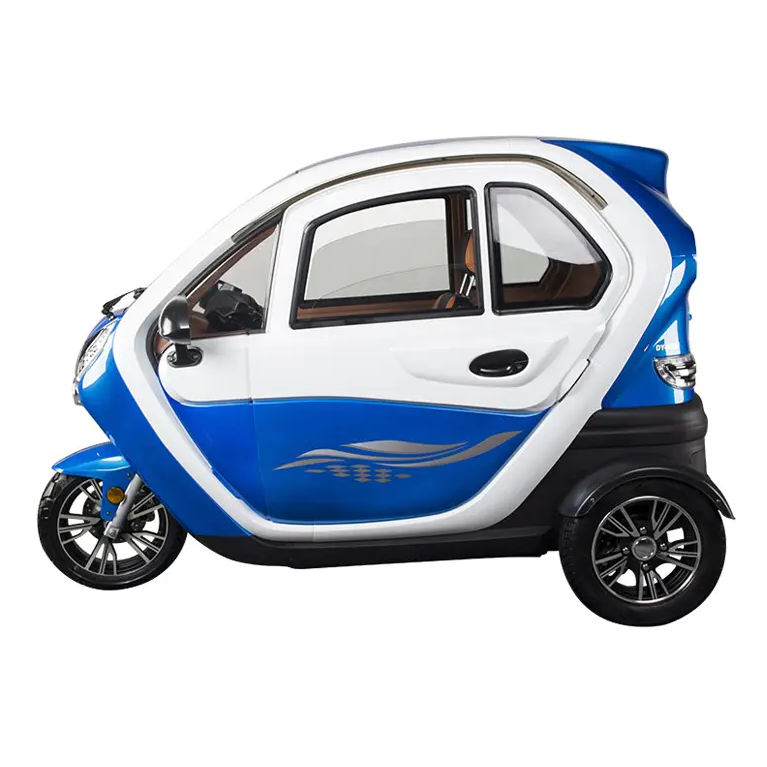The growing interest in electric cabin scooters as a sustainable and efficient means of personal transportation has presented manufacturers with both opportunities and challenges. These compact vehicles are designed to offer a comfortable, environmentally friendly alternative to traditional modes of transport, particularly in urban environments where traffic congestion and parking are common concerns. From a manufacturing standpoint, producing electric cabin scooters involves a careful balance of design, performance, safety, and cost-efficiency to meet the demands of consumers.
One of the main challenges manufacturers face is ensuring the cabin scooter is both compact and spacious enough to provide a comfortable ride while remaining easy to maneuver. The cabin design must be optimized to offer sufficient interior space for the driver while keeping the overall footprint small enough for urban use. This requires attention to detail in the design of the cabin structure, seating arrangements, and the placement of controls to ensure accessibility and comfort. The use of lightweight materials, such as composite plastics or aluminum alloys, is often considered to maintain the vehicle’s portability without compromising durability.
Battery technology plays a significant role in the manufacturing of electric cabin scooters. The power source must be reliable and efficient, providing a sufficient range for daily use while remaining lightweight and easy to charge. Lithium-ion batteries are commonly used due to their relatively long lifespan and efficient energy output. Manufacturers must balance the battery's capacity with the need for a compact design, ensuring that the vehicle remains lightweight while still offering enough power for city commuting. Additionally, charging infrastructure and the speed at which the vehicle can be recharged are important factors for manufacturers to consider when designing the charging system.
Electric cabin scooters must also meet various safety standards. As these vehicles will be driven on public roads, manufacturers are required to ensure that the scooters have reliable braking systems, lights, and signals for visibility, as well as sturdy construction to protect passengers in the event of a collision. The stability of the scooter is another critical aspect, as manufacturers must design vehicles with low centers of gravity and a robust suspension system to ensure smooth handling on urban roads and rougher surfaces. Attention must also be paid to the safety features inside the cabin, such as seat belts, airbags, and impact-absorbing materials.
In addition to these technical factors, manufacturers must also consider regulatory compliance when producing electric cabin scooters. Different countries and regions have varying regulations regarding electric vehicles, including specific requirements for emissions, safety, and roadworthiness. Staying abreast of these regulations and ensuring that the scooter meets all local standards is essential for manufacturers wishing to market their products globally.
Cost is another key consideration for manufacturers. While electric cabin scooters offer significant environmental benefits, their production costs can be high due to the specialized components required, such as electric motors, batteries, and advanced safety features. Manufacturers must find ways to manage production costs without sacrificing the quality or performance of the scooter. This may involve optimizing the supply chain, investing in more efficient manufacturing techniques, or exploring partnerships with component suppliers.
In conclusion, manufacturing electric cabin scooters requires a comprehensive approach that includes addressing design, battery efficiency, safety standards, regulatory requirements, and cost management. By focusing on these key areas, manufacturers can meet the growing demand for sustainable urban transportation solutions while providing a product that is reliable, safe, and suitable for daily use. As the technology behind electric vehicles continues to evolve, so too will the design and functionality of electric cabin scooters, offering consumers more options for convenient and eco-friendly transportation.

